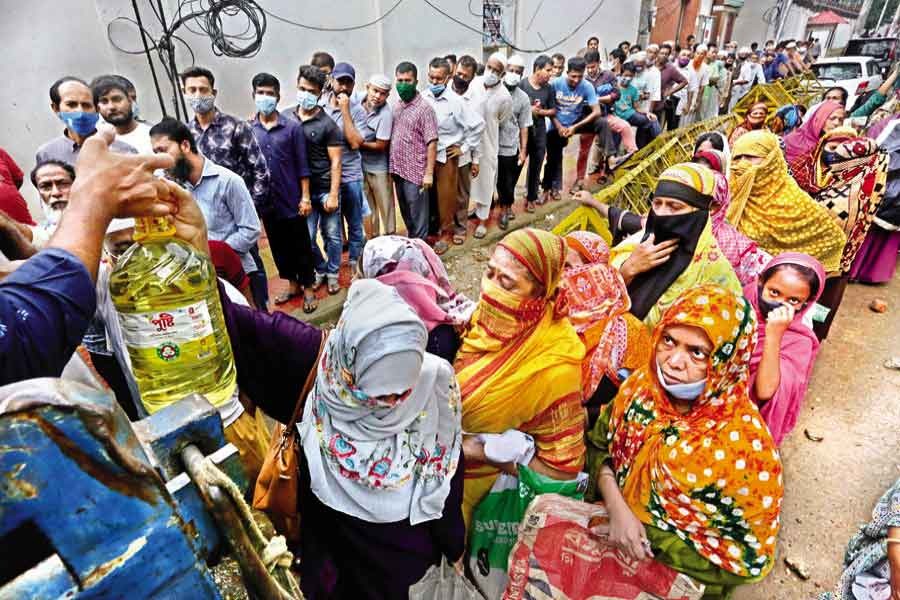Most of the daily essentials, particularly the cheap sources of protein, have become dearer in the market. The rice market has long been volatile and the government efforts so far have proved futile to stabilise the staple's price. Compared to the Indian market, even a kilogram of the coarse variety of rice the poor segment of society is used to consume is priced at least Tk 10 higher. Now the situation has suddenly exacerbated with almost all kinds of vegetables marking a sharp increase in prices. No vegetable is available at a price below Tk 50. Some of the early arrivals of what are called winter vegetables such as beans and cauliflower have an atrociously high price tag. Beans are priced at Tk 120-150 a kilogram. Leave alone such choicest kinds, the usually available vegetables are now beyond the reach of the poor and low-income groups.
Notwithstanding the floods that have affected the northern and middle parts of the country, the vegetable-growing regions have remained more or less unscathed. This is also evident from the abundant supply of vegetables to the market. In fact, traders seem to have decided to make up for the low profit made or losses incurred during the pandemic. Kitchen market volatility, like those of rice and other essentials, is mostly man-made. Both farmers and consumers are deprived of fair price while middlemen and trading syndicates make the most of a market manipulated to their advantage. They could not care less if the fallouts of the pandemic have rendered a large number of people poorer or meagre income-earners. With lower purchasing power, many people are simply struggling to eke out a living. In this crunch time, manipulated price hike hurts them most. Lower income forces them to make do with the bare minimum and the alternative to eggs or broiler chickens is next to nothing. So if people belonging to the lower strata are compelled to sacrifice these cheap sources of protein too, the national health status will face a severe setback.
Reports have it that prices of eggs and broiler chickens are tagged almost daily by a syndicate which controls the supply of such items according to its sweet will. The poor man's dish of pulse and rice is also not affordable. Price of pulse has registered a hike by no less than 20 per cent. What is particularly galling is that the government cannot make traders comply with the prices set at meetings with business leaders. Cooking oil and sugar, for example, are not sold at the prices agreed at meetings between the commerce ministry and traders.
Clearly, there is a need for breaking the market monopoly of the trading nexus. When demand and supply in a free market economy is distorted by artificial means, the government has every right to intervene. But government intervention proves ineffective because the country is small and the trading community instead of competing with each other to capture market resort to manipulative means. The Trading Corporation of Bangladesh (TCB) has proved to be a poor tool to deal with the problem. The best option open to the government is to develop a transportation fleet that can ultimately be handed over to farmers' cooperatives for eliminating the middlemen. This will at least take care of local produces and products if not the imported commodities.


